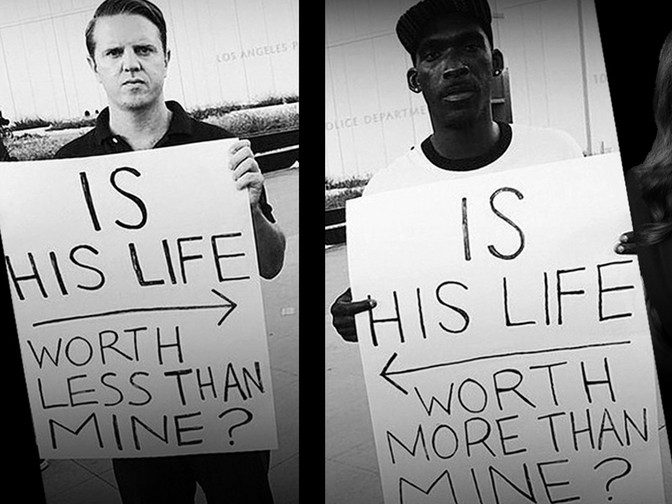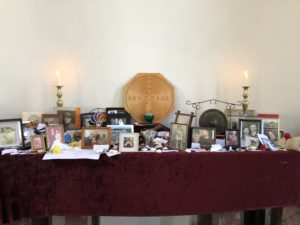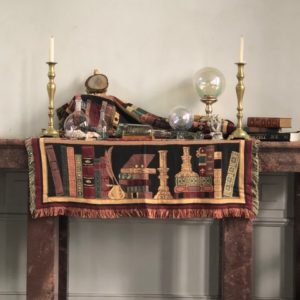Worship for April 2016: “What does it mean to be a people of creation?”
Read the Order of Service.
Reading: 1 Corinthians 12:12-27
Guest Speaker: the Rev. Dr. Lehman Bates of Ebenezer Baptist Church
Sermon: One Body; Many Parts; All Not (Yet) Equal
It is really wonderful to be back at what is beginning to feel like my second church home here in Charlottesville. The last time we did this, your pastor chose the text we drew on, a story from the Gospel of Luke. This time I got to choose, but my heart wasn’t drawn to a story. Instead, I immediately heard in my ear words from the Apostle Paul’s first letter to the church in Corinth. It’s the passage that begins, “There is one body, but it has many parts,” and ends, “You are the body of Christ. Each of you is a part of it.”
This is one of those passages that even people who don’t memorize scripture seem to know. There is one body, and each of us – all of us – are a part of it. You, and me, and people we’ve never met, and even people we don’t particularly like are all a part of it. One body, and we’re all included.
1st Corinthians is more formally known as Paul’s First Epistle to the Church in Corinth, because that’s what it was. Paul wasn’t writing a book of scripture that he expected us to be studying a couple thousand years later. He was writing an epistle, a letter, to the church in Corinth … a church he’d planted some few years before. He’d brought together some good hearted folks who seemed open to hearing God’s good news, and showed them how to be a church. And then he left them to fend for themselves.
Now … maybe it’s not the same here, but I have to say that as much as I love church folk I’ve known my share who I wouldn’t want to leave in charge of making coffee, much less the whole church! So if I left you know I’d want to keep my eye on them, just to make sure that everything was going along okay.
Well, Paul did too. And when he heard that one of the congregations he’d helped start had begun going down a slippery slope, he’d write them a letter. “Are you serious,” he’d write. “Hold on here … you’re doing what now?”
That’s what the epistles are. Reminders. Corrections. He apparently needed to write letters like that to the church in Rome, Ephesia, and Philippi; he wrote to a bunch of churches in Galatia; and he wrote to the Thessalonians and the Corinthians twice.
So, it seems that Paul had heard that the people in Corinth had forgotten that they were one body, that they were a single and unified community and that everyone was a part of it. No distinctions; no exceptions. He had to remind them: you are one people. You belong together. All of you.
It’s really easy, isn’t it, to see all the ways you and I – and, maybe even more so, how those other people, over there – aren’t connected. It’s easy to see all of the ways that we’re different, partly because we live in a culture that teaches us to look for those differences. Our shared history shows us that no matter how much we may say that we’re all one happy family, we’re not. If nothing else, some of us have been treated very differently, are being treated very differently. We’ve been reminding ourselves over and over again that those differences are supposed to matter. And we know that sometimes being aware of those differences has been – and can be still – the difference between life and death.
There were differences and distinctions back in Paul’s time too, of course, and in his letter to this particular congregation he knew and loved he was reminding them that from God’s point of view those differences don’t matter. That, in an ultimate sense, we’re all part of one body. The holy body of Life itself.
But he said more than this, too. His message was a little more nuanced than that.
“There is one body,” Paul wrote, “but it has many parts. But all its many parts make up one body.” And then he says again, “the body is not made up of just one part. It has many parts.”
See? He’s done a friend of mine calls “complexifying.” We are one body, yes, but we’re not all the same. We’re not even supposed to try to be all the same. We’re supposed to be different. Not in the distorted way our culture and our history keeps trying to tell us that we’re different, but in the beautiful ways we just naturally are. Remember the workshop you all did here about “temperament types?” Differences. Here’s Paul again:
“Suppose the foot says, “I am not a hand. So I don’t belong to the body.” […] And suppose the ear says, “I am not an eye. So I don’t belong to the body.” […] If the whole body were an eye, how could it hear? If the whole body were an ear, how could it smell? God has placed each part in the body just as God wanted it to be. If all the parts were the same, how could there be a body? As it is, there are many parts. But there is only one body.”
One body. Many parts. Different parts. Even though, ultimately, those differences don’t matter, we need to be aware of them and appreciate them for the gifts they are.
So maybe we could say that Paul’s telling them – and us, because this letter to them has become scripture to us – that we aren’t supposed to let the differences divide us; that we shouldn’t be blind to them, but that we’re not supposed to be blinded by them either.
But even that’s not all that Paul wanted to remind that fledgling church in Corinth, or that we still need to be reminded of today. We’re one body – yes. And that one body has many parts – got it. But then there’s still one thing more.
The eye can’t say to the hand, “I don’t need you!” The head can’t say to the feet, “I don’t need you!” In fact, it is just the opposite. The parts of the body that seem to be weaker are the ones we can’t do without. The parts that we think are less important we treat with special honor. The private parts aren’t shown. But they are treated with special care. The parts that can be shown don’t need special care. But God has put together all the parts of the body. And God has given more honor to the parts that didn’t have any. In that way, the parts of the body will not take sides. All of them will take care of one another. If one part suffers, every part suffers with it.
We’re all one body – one body, even though we’re not all the same. And … it’s those parts of that body that are different in ways which can make them seem “less than” that need special attention. “Blessed are the poor, those who mourn, the meek, the persecuted.” You know the list. Liberation theologians say that God has a “preferential option for the poor.” Paul says that it’s the parts of the body that seem the weakest that are the ones we can’t do without. And, he says, that all of the parts – all of the parts – need to take care of each other because if any one part suffers, every other part suffers too, the whole body suffers. It’s Dr. King’s “inescapable network of mutuality,” that, “single garment of destiny.”
After we’re done here together this morning, I’m going back to the church I serve because we’re having a congregational meeting – the first of two to consider affirming and adopting a statement of public witness that was endorsed at our national convention this past summer. It’s a statement of support for, and solidarity with, the Black Lives Matter movement. It’s true, of course, as some would have us say, that “all live matter,” but after 400 years of acting as though the lives of African Americans don’t matter in this country, there’s a growing urgency to say today – often, loudly, and explicitly – that they do. We are one body – but that truth has been violently ignored. We are one body, with each part necessary to the whole – but some parts have acted as though they are all the body needs. As though they are the body. As though they can say to some other parts of the body, “You don’t belong here.”
But that’s not the way this works. That’s not the way God works! So today we need to remind ourselves – all of us – that for God it’s those parts that have been pushed to the margins that matter most; those parts that have received the least regard that really deserve their due; those parts that that have been treated unjustly – even brutally, inhumanely – that ought now to be treated as they should have been treated all along: as members of the one body to which all belong, as essential as any other.
God said it. Paul wrote it. Let us hear it. The parts of the body should not take sides. All of them must take care of one another, because if one part suffers, every part suffers with it. The body cannot be whole, cannot be holy, if its parts are at war.
I believe that those Corinthians learned that lesson. I hope that we, today, do too. The health of the one body of which we are each and all parts depends on it. May it be so, and amen.













